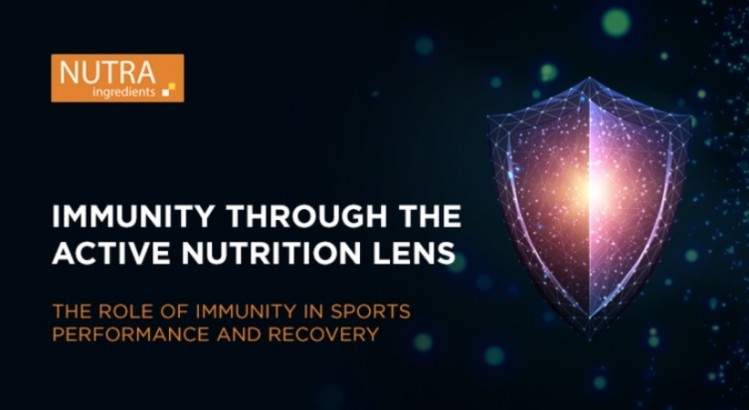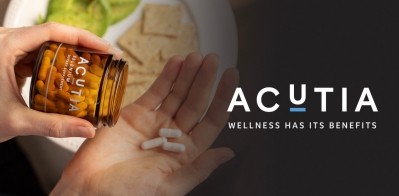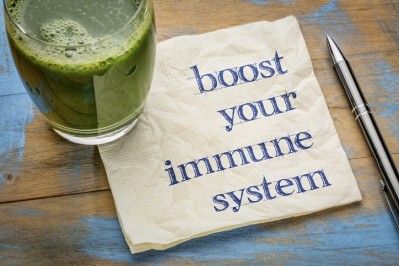Active nutrition and immunity: Experts discuss key ingredients, personalization, the microbiome, and more

The webinar, “Immunity through the Active Nutrition lens: The role of immunity in sports performance and recovery” assembled a panel of experts, including:
Philip Calder, PhD, Professor of Nutritional Immunology and Head of Human Development & Health, Faculty of Medicine, University of Southampton
Ho-Ling Chack, Director Personalized Nutrition North America, DSM
Ralf Jaeger, PhD, Managing Member, Increnovo LLC
Vijaya Juturu, PhD, Senior scientific manager, R&D, Lonza
The free to attend webinar is available on-demand by clicking HERE, but here are some of the key statements made during the extensive discussion:
How exercise can impact the immune system and why immunity is a key consideration for athletes
Prof Calder: “The effects of exercise on the immune system are a little bit paradoxical. We know that people who are physically fit have better immune defenses than people who are not physically fit. So, there is something about physical fitness that optimizes the immune system. That might be through the training of the immune system that physical activity gives. It may also be through metabolic and hormonal changes that being physically fit induces.
“Paradoxically, doing intense exercise, particularly repetitive exercise is actually harmful, at least for a period of time, for the immune system. A very intense bout of exercise changes immune cell numbers in the blood stream, some go up and some down, and changes the functionality of those cells. So, intense exercise is actually followed by a period of immunosuppression.
“What that means is that immediately after intense exercise, individuals can be very vulnerable to infection, particularly respiratory tract infections. There’s a period of immunosuppression and susceptibility to infection, but cumulatively over time in the un-exercised state physically fit people actually have immune protection.
What are some of the key nutrients and supplement ingredients that active consumers should be considering?
Prof Calder: “The key ones are the whole range of fat-soluble and water-soluble vitamins. Trace elements, particularly zinc, copper, selenium, iron, magnesium, and manganese. Essential amino acids and some other amino acids for supporting the immune system. Essential fatty acids, so omega-3 fatty acids are important. And then some others like phytochemicals like flavonoids, prebiotic oligosaccharides, and anything that alters the gut microbiota in a beneficial way.”
Focusing on omega-3s, Prof Calder added that omega-3s have multiple impacts across the immune system affecting the function of many of the different cell types, affecting the production of many of the chemical mediators involved in the immune response, and ensuring that immune balances are achieved.
“Probably the best described effects of omega-3s, and this is very relevant to sports nutrition and exercise nutrition, is the anti-inflammatory effects, so the ability of omega-3s to help control inflammation and to help inflammation to resolve.”
Dr Juturu discussed the role of protein in immune function, noting that we’ve known for decades that a deficiency in dietary protein or amino acids impairs immune function, which may increase our susceptibility to infectious diseases.
“Looking at joint health, which is very important for your daily activities, the undenatured type-II collagen is showing a mechanism of action where the immune system plays a key role. Undenatured type-II collagen is really regulating your T cells, which are very important for your immune system also to enhance your anti-inflammatory properties,” she said.
A review discussed the potential benefits of L-carnitine to athletes and one of the mechanisms mentioned is the prevention of programmed cell death in immune cells. Dr Juturu said that there are studies supporting the potential benefits for immune health and also for exercising individuals.
“It is reducing your oxidative stress, and it has a protective role especially on the peripheral blood lymphocytes. So there is a potential role for L-carnitine, which is why more research is going on on that topic.”
Probiotics for immune support in athletic populations
Dr Ralf Jaeger contributed to two key recent papers regarding probiotics for sports nutrition, including an extensive review published in the Journal of the International Society for Sports Nutrition (JISSN) on the athletic gut microbiota.
“Key findings from that paper was that active individuals appear to display a higher abundance of health-promoting bacterial species and increased microbiota diversity,” said Dr Jaeger. “The differences are linked to exercise and diet that are typical for athletes, so high protein diet. We also found that exercise and training can modulate the composition and metabolic capacity of the gut microbiota in sedentary individuals. The general rule of thumb is that your bacteria will match the host, so your bacteria will become more metabolically active.”
“Approximately 70% of the immune system is located in the gut and probiotic supplementation has been shown to promote a healthy immune response.
“Looking specifically at athletes, we know that in an athletic population, specific probiotic strains can reduce the number of episodes, severity and duration of upper respiratory tract infections.”
Dr Jaeger stressed that the health benefits of probiotics are strain specific, so consumers need to use the right strain for the right application.
“Probiotic research in athletes is really in its infancy, so therefore the amount of really clinically validated strains is still limited.”
Specific strains for which there is human clinical data supporting a reduction in severity or duration of URTIs for endurance athletes, include Bifidobacterium animalis ssp. lactis Bl-04, Limosilactobacillus fermentum VRI-003 (PCC) (formerly Lactobacillus fermentum), Lacticaseibacillus casei Shirota (the ‘Yakult strain, formerly Lactobacillus casei Shirota), Lactobacillus helveticus Lafti L10.
Lonza’s Dr Juturu added that probiotics may act on the innate immunity, which may have a protective role, particularly on the intestinal epithelial cell survival, and enhanced barrier function, thereby protecting against leaky gut, which has a role in inflammatory responses.
Individuality and personalized nutrition
DSM’s Chack said that we should think about personalization in a much broader context, and not just focus on physiological factors.
“The reality is that dietary and lifestyle behavior also play a major role. Including holistic lifestyle elements such as sleep, stress management, and exercise brings added credibility to the overall recommendations, and most importantly provide an enhanced and more personally relevant experience to the users.
“It’s also important to note that supplements alone are not going to be the magic bullet, and such promises or claims actually erode credibility with the consumer.”
Prof Calder added that the immune system is all about genetic variation. “We all have different immune systems because the genetic rearrangements within our immune system are a little bit random and that’s what gives us the ability to respond to so many different bacteria and viruses. There probably will be genetic determinants of nutritional needs from the point of view of the immune system.”
Chack added that the biggest challenge for personalization is establishing the value proposition and formulating a business model that is sustainable.
Also discussed during the webinar were: Vitamin D, selenium, immune health and immunosenescence in the elderly, testing for nutrient status, and the gender differences around probiotic benefits.















